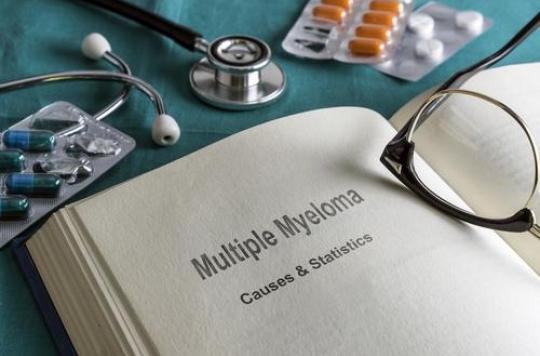Spanish researchers have studied the effectiveness of a new treatment based on daratumumab, a human monoclonal antibody, in fighting bone marrow cancer. In a clinical trial, this new approach improved the survival rate and decreased the risk of recurrence in patients.

Around 5,000 new cases of multiple myeloma (a cancer of the bone marrow) are detected each year in France according to a study by the High Authority for Health and the National Cancer Institute carried out in December 2010. Several treatments are possible: chemotherapy, symptomatic treatment (management of pain, spine fracture or hypercalcemia) or autologous stem cell transplantation. The cancer tends to recur regardless of the treatment, which is why we commonly speak of an incurable disease.
A study carried out by professors at the University of Salamanca, in Spain, attests to the effectiveness of a new therapeutic combination to treat this cancer in the case of patients not eligible for autografting of stem cells. Results are available on the New England Journal of Medicine website.
Too much plasma cell production
Also called “Kahler’s disease”, myeloma is a type of cancer that belongs to the group of plasma cell cancers. The body produces too much plasma cells. These cells can no longer do their job and take the place of other blood cells, white blood cells, red blood cells and platelets. We speak of multiple myeloma when the marrow is affected in several bones.
A combination of several treatments
Common treatment for treating patients is a combination of bortezomib (a cancer drug), melphalan (a chemotherapy drug), and prednisone (a drug). Daratumumab is an anti-tumor that has already shown its effectiveness in previous research. Spanish researchers combined the first treatment with daratumumab. The results show that this combination is more effective than treatment alone.
The 18-month disease progression-free survival rate was 71.6% for this group and 50.2% for the group that took the regular treatment. 25.1% of the patients in the group who took the combination of treatments saw the disease progress or died, compared to 40.2% for the other group. In 2005, Inserm estimated the 5-year survival rate for myeloma at 40%.

.

















